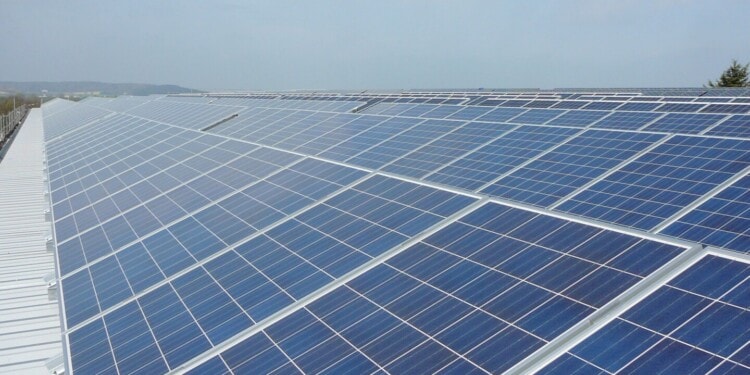The war in Ukraine has revealed the extent of Europe’s dependence on Russian gas and oil and how deeply detrimental this is to national security.
This is part of a general pattern by which western powers — especially in Europe — depend on fossil fuels from authoritarian regimes to sustain themselves energetically. Even the United States, despite having huge reserves and energy sources at home, is turning to autocratic regimes to fill the oil gap that sanctions on Russia have created: American delegations are reportedly negotiating with Iran and Venezuela.
This has never been efficient even in terms of climate action, but behind the tragic aggression on Ukraine, there is a lesson that the international community should not disregard: Energetic autonomy brought through renewable energy can foster democratization worldwide.
Addressing humanitarian, military and political problems related to the conflict should remain the priority for all countries. Not only because climate change will eventually threaten life in the way the war in Ukraine does, but because aggression towards a sovereign state cannot be left as an unpunished precedent. Such occurrence would disrupt international political equilibria, fostering further conflicts with associated economic crises and the death of innocents. However, despite the tragic way in which this opportunity unfolded, the war in Ukraine de facto allows the world to see more clearly the potential of investing in renewable energy.
The international community has to find a substitute for Russian gas to avoid losing bargaining power and to protect its economic interests or, in the case of the EU, its borders. If outsourcing to other fossil fuel exporters is a necessity in the short term, it cannot become an excuse for not investing in renewables in the long term.
Western leaders are turning to gulf countries — and in the case of Italy, to Algeria from whom it already receives 25% of its gas — to replace Russian gas. Any deal that could be made out of such a relationship will never be solid enough to become the foundation of their defense strategies, let alone for properly addressing climate change. The long-term starts today and therefore finding a more environmentally sustainable and politically viable alternative has to be a priority.
As Russia’s ruthless invasion continues, the EU and our G7 partners continue to ramp up the economic pressure on the Kremlin.
Tomorrow, we will introduce a fourth package of measures to further isolate Russia and drain the resources it uses to finance this barbaric war ↓
— Ursula von der Leyen (@vonderleyen) March 11, 2022
The benefits of renewable energy in the long-term
There are three good reasons why renewable energy can be that alternative:
- it would help to fight climate change;
- it would safeguard domestic resilience against energetic crises, and
- it would undermine authoritarian regimes worldwide.
If the first two are already deeply analyzed rationales, the third is less explored.
Many authoritarian regimes exploit the presence of fossil fuels in their borders to sustain undemocratic policies and human rights violations. The elite in power retains influence on the international community through the threat of removing access to their resources to countries that oppose their interests.
Current examples of authoritarian schemes supported by dependence on fossil fuels are primarily Russia and Saudi Arabia.
Russia has been violating human rights ever since Putin and his neo-imperialism came into power. From the wars in Chechnya and Syria to the latest aggression in Ukraine, Russia’s vision for the world stands clear: Anyone who disagrees is eliminated.
Saudi Arabia bases its penal code on sharia law, restricting the rights of minorities and different societal categories as well as women. Moreover, Saudi Arabia suppresses domestic and international dissent over its policies, as was blatantly shown with the assassination of journalist Jamal Khashoggi.
Other examples include Myanmar, where the local military regime, which took power illegally with a coup, sustains its repeated abuse over the Rohingya minority with the profit made from the export of natural resources (in this case primarily wood).
The takeaway should now be evident. Renewable energy is a policy bliss point for the long term: it is indeed a provision in which the fight for sustainability and the fight for an equitable society find themselves on the same side. Each solar panel protects a woman from being harassed on the street; each hydroelectric turbine reduces the risk that minorities are going to be persecuted; each wind blade helps journalists to spread the truth.
The same set of provisions could allow us to live in a better and safer society. But then why are they not pursued? All in all, it’s in the 1970s, with the Yom Kippur war, that the issue became clear before international fora.
What stands between long-term benefits and current political decisions
The reason proper action was never undertaken is that not enough people cared about it, and consequently also the community of states: Better to manage economic crises as they arise than to restructure the nation’s economy to obtain long-term benefits. The culprit is therefore a combination of economic interests, societal short-sightedness and political incentives to dwell on both of them.
Businesses have an incentive to invest in sustainability largely due to the point that society forces them to. Even though new contributions in management theory purport that companies should change their business model to include Sustainable Development Goals, many are still evaluating short-term benefits to pollute as more profitable.
Most companies currently engage in Corporate Social Responsibility (CSR), which is nothing more than marketization of good actions, with the long-term goal of improving the company’s image and reputation. The fact that having a concrete effect on sustainability is not at its core is signaled by the fact that CSR mainly affects peripheral activities of the company, or one-time donations/efforts. Ad hoc measures are not going to offset an unsustainable production framework.
That’s why business analysts suggest engaging in Corporate Shared Value (CSV). CSV entails basing the company strategy on satisfying societal needs. In this way, CSV intertwines with profit maximization and sustains growth in the long term. In the end, by engaging in CSV, companies invest in societal growth, and a more prosperous society will benefit profit-making in turn.
Related Articles: EU to Cut Reliance on Russian Gas With New Plan | EU Leaders Won’t Offer Fast-Track Membership To Ukraine
But again, to make businesses embrace change, society has to nudge them towards it. In the end, it’s in human nature to tend towards short-term benefits with respect to caring about long-term complications.
The problem at the base of the sustainability question is however that people too have to be pushed to understand they have to nudge companies. This stems from the fact that large portions of society care more about the taxes they have to pay next month and their concrete, day-to-day issues than the long-term safety of the planet. Even having kids, extending their horizon of interest in years to come, won’t make them change their minds.
The main factor at work here is economic uncertainty. Under its grip, people are concerned about whether their kids will be able to go to school or have food on their plate, not whether in fifty years from now they will be able to see polar bears. The fact that in fifty years many harsher consequences would stem from climate change, undermining their children’s survival is either part of a distant, almost alternative reality or a problem someone else is going to have to solve.
Prospects seem dim, but if new generations show the world how necessary climate action is, politicians could be persuaded that acting concretely on climate change is going to be more beneficial to them than appeasing oil lobbies and giving away short-term sops to societal categories.
Politicians have it in their power in fact to enforce regulation mechanisms on businesses to engage in CSV and they will do so only when enough people will put climate action at the top of their priority list, alongside taxes and unemployment.
Journalists, international organizations and civil society have to invest in showing people what their choices imply, what is at stake whenever they buy a sustainable product or make an eco-friendly decision. Then the choice becomes theirs.
A circular chain of choices is all that stands between the present and a more democratic and sustainable future. A link of this chain calls for doing whatever is needed to stop the Russian aggression on Ukraine. The one right after that entails investing in renewable energy. This is precisely what the UN Secretary-General reminds us of in his tweet:
Global CO2 emissions rebounded to reach their highest level in history in 2021, according to @IEA.
We need a massive boost in technical & financial support to accelerate the phaseout of coal & create a just transition to renewable energy & green jobs.https://t.co/pJRMiFP79h
— António Guterres (@antonioguterres) March 11, 2022
With rising CO2 emissions, that is precisely what we need: A massive investment to accelerate the transition to green energy. And that is precisely what the head of the EU Commission promised she would do yesterday, at the press conference following the EU Summit in Versailles: She said a plan would be presented by mid-May to phase out dependence on Russian energy by 2027, although member states differ on whether this is feasible. Many argue at least ten years are necessary. One can only hope that the transition won’t take that long, for neither climate change nor Russia are likely to wait.
Editor’s Note: The opinions expressed here by Impakter.com columnists are their own, not those of Impakter.com. In the Featured Photo: Solar panels in Hannover, Germany. Featured Photo Credit: Wikimedia Commons.









